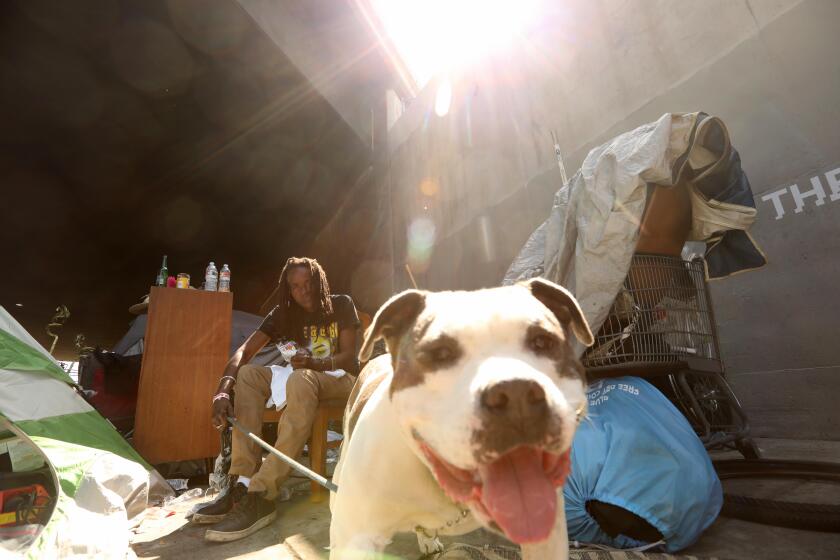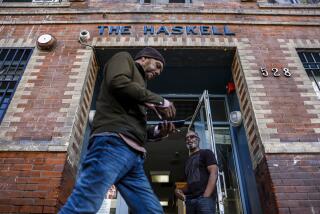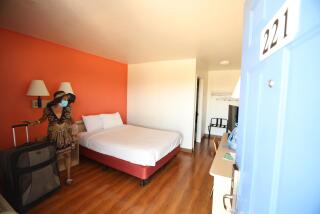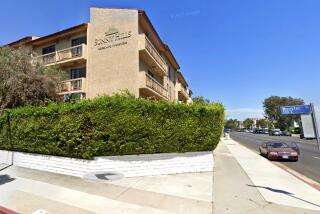Advocates say homeless hotel program discriminates against disabled people
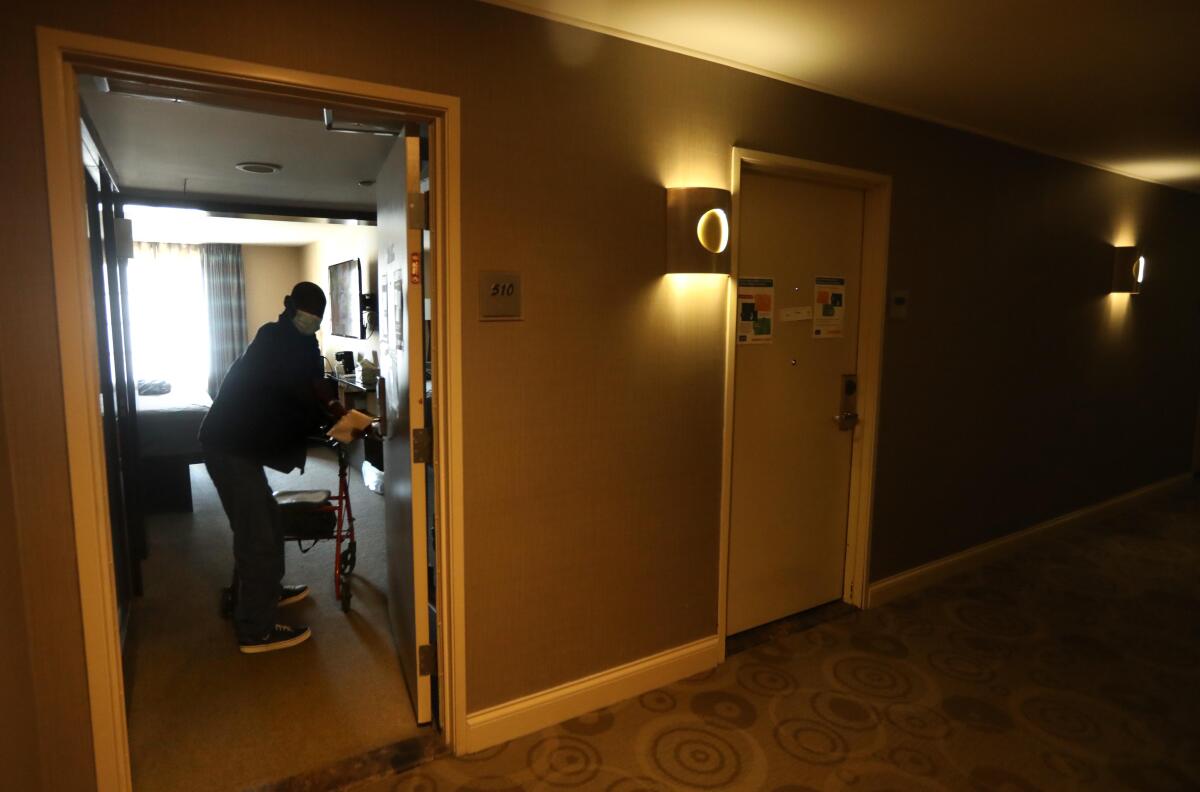
A program that has moved thousands of homeless people into hotel and motel rooms to protect them from the coronavirus discriminates against some of the most needy and vulnerable living on the streets, a group of advocates for elderly and disabled residents has charged.
In a scathing letter sent this month to the Los Angeles Homeless Services Authority and copied to dozens of city and county officials, the advocates alleged that in selecting which people to move into hotel rooms through Project Roomkey, the agency has deliberately excluded those who cannot handle on their own basic activities, such as going to the toilet or getting out of bed.
Citing a written LAHSA policy obtained from staffers at the agency, members of the Los Angeles Aging Advocacy Coalition and others who signed the letter said LAHSA is violating a host of federal and state laws, including the Americans with Disabilities Act and the federal Fair Housing Act. Before the pandemic, the group had long argued that the city’s homeless care system is not equipped to assist people who are unable to manage basic self-care because of physical disabilities such as an amputated leg.
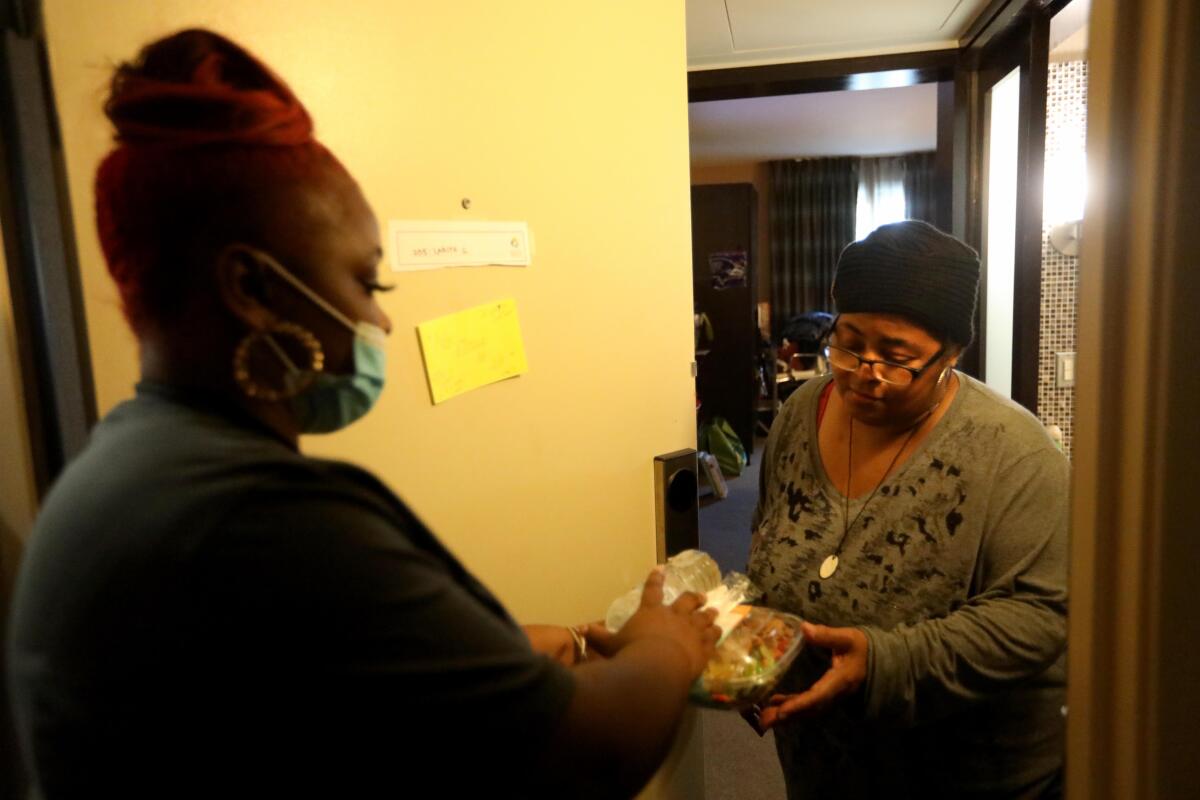
“The result of this policy is a disproportionate denial of housing and housing services to the very older adults and people with disabilities who are most at risk of severe symptoms or death as a result of COVID-19,” they said. “We have heard from many service providers that they have been unable to obtain [Project Roomkey] approval for their clients who are older individuals with a range of disabilities.”
Part of a statewide program initiated by Gov. Gavin Newsom, Los Angeles County’s Project Roomkey has leased more than 4,000 hotel and motel rooms for elderly or medically vulnerable homeless people. The rooms were enough for only about a quarter of the 15,000 people LAHSA identified as being eligible for the program under guidelines put out by the Centers for Disease Control and Prevention.
A program that has moved thousands of homeless people into hotel and motel rooms to protect them from the coronavirus discriminates against some of the most needy and vulnerable living on the streets, a group of advocates for the elderly and disabled have charged. The letter references a Christina Miller as the executive director California Foundation for Independent Living Centers. Her name is Christina Mills.
The letter sent to LAHSA, which The Times obtained from someone who received it, calls on the agency to immediately end its policy, identify people who were denied housing and adopt practices that have been used in other counties to provide the services needed to support disabled people in the hotel rooms.
Brandi J. Orton, managing director of the Aging Advocacy Coalition, said the group has a meeting scheduled with LAHSA on Tuesday to attempt to work out a solution.
LAHSA Executive Director Heidi Marston declined to answer specific questions until after the meeting.
“LAHSA is committed to providing needed services to the many people experiencing homelessness in Los Angeles County, a population with complex needs, in an environment of limited resources,” Marston said in a statement. “We look forward to discussions with the coalition that may allow us to increase our reach and better meet the needs of this vulnerable population.”
While alleging serious violations, the letter does not explicitly threaten legal action.
“It is not a demand letter,” said Patti Prunhuber, senior housing attorney for Justice in Aging, one of the groups that signed the letter. “It is notifying them that we have a serious problem that we need to resolve in a quick and thorough manner, with everybody coming to the table.”
Orton said coalition members who monitor homeless programs grew alarmed when LAHSA reported in June that only about 18% of those in Project Roomkey rooms were 65 or older.
“That was shocking to us,” she said. “We know there are upwards of 6,000 older adults on the streets.”
Older adults have higher rates of physical disabilities that make it hard for them to manage their daily activities, she said. Orton and Prunhuber said LAHSA’s practices need to change so that those with physical disabilities, as distinguished from those with medical needs, can be accommodated.
Orton said she hopes the upcoming talks will address broader concerns her organization has had for years over the lack of services to address homeless older adults.
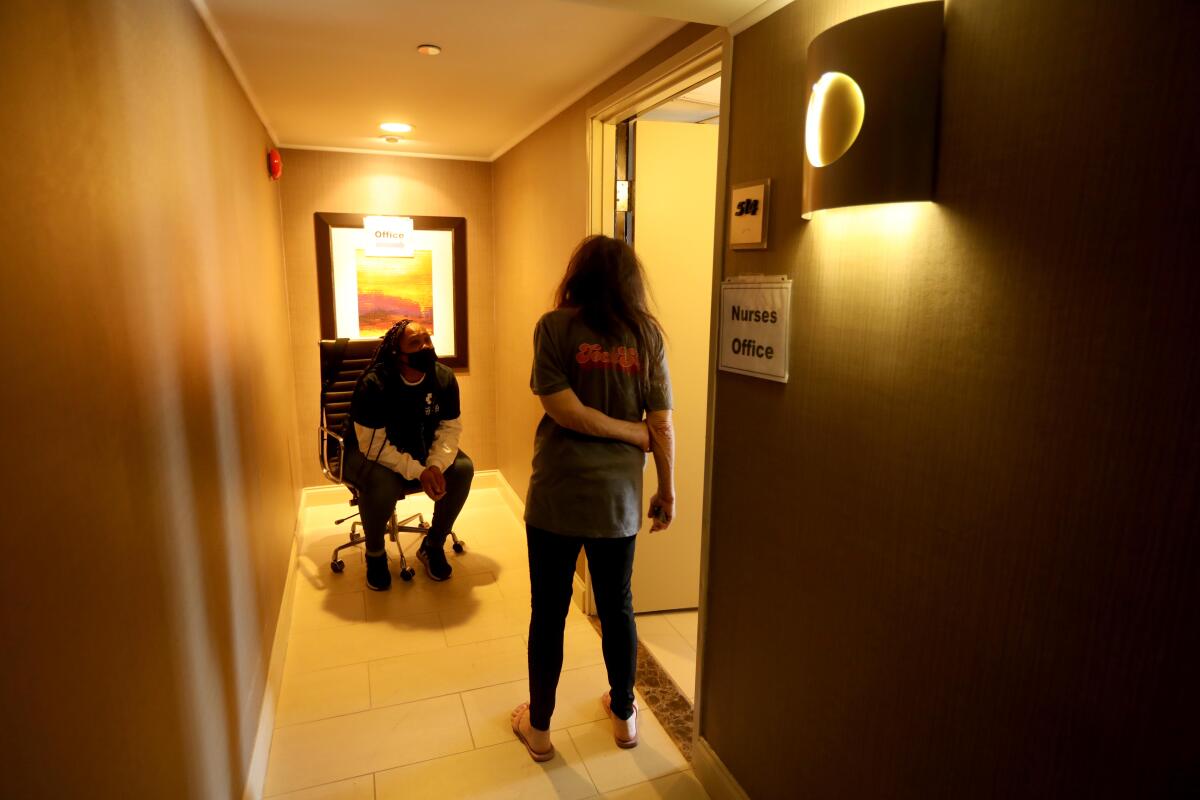
“The homeless services delivery system has struggled for many years with the issue of personal care,” she said. “The aging sector and homeless services sector have not had any historical relationship. People in the aging sector don’t know how to access homeless services. People in homeless services don’t know how to access services in the older-adults system.
“If LAHSA is going to rectify what went wrong, they need to connect to these systems.”
Other counties have integrated personal care services into Project Roomkey, Prunhuber said. She pointed to San Francisco, where hotels in Project Roomkey are staffed with trained personal care workers.
A judge ordered officials to provide space in shelters or alternative housing for homeless residents living near freeways. But where will they go?
In Los Angeles County, Project Roomkey beds are close to 90% occupied. LAHSA has proposed an $800-million plan to provide housing over the next three years for the several thousand people who are eligible for the program but have not received a room.
Besides Orton and Prunhuber, the letter was signed by Rigo J. Saborio, president and chief executive of St. Barnabas Senior Services; Christina Mills, executive director of the California Foundation for Independent Living Centers; and disability policy consultant June Kailes.
Kailes, who consults for nonprofits, businesses and government agencies, said it is critical for LAHSA to not only scrap the policy but also to train its staff on how to manage people with disabilities.
“The issue is kind of implicit bias,” Kailes said. “People just automatically assume things. They assume if someone needs a little help in the morning getting dressed, they must have medical problems and need medical assistance.”

